What is Mild Steel Plate Pricing Guide
Mild steel plates are a type of steel material that combines low carbon content with a range of useful properties, making them suitable for a variety of applications. They are widely used in construction, shipbuilding, manufacturing, and many other industries that require the strength and durability of steel. These plates are fabricated by rolling steel slabs, which are heated to a malleable temperature and then passed through a series of rollers to achieve the desired thickness and dimensions.
The pricing of mild steel plates is influenced by several factors including the grade of the steel, the size and thickness of the plate, and the market conditions. Mild steel plates are available in different specifications and grades such as Q235, SS400, SPCC, and DC01, among others. They can also be fabricated to specific requirements, including bending, welding, and punching, which adds to their versatility and applicability in various projects.
Businesses that require mild steel plates often seek them out due to their high strength-to-weight ratio, which allows for the design of lighter structures without compromising on durability. The principles behind how mild steel pricing works are based on supply and demand dynamics, the complexity of the process involved in producing the material, and the current market conditions.
Types of Mild Steel Plate Pricing Guide
Mild steel plates come in an array of types, each suited for specific applications based on their properties and processing capabilities. For instance:
-
High Strength Steel Plate: This type of plate is designed for applications requiring high tensile strength, such as in the construction of bridges or heavy-duty machinery. It is often made with additional alloying elements to enhance strength.
-
Ship Plate: Ship plates are used in the construction of ships and marine equipment. They need to be highly resistant to saltwater corrosion and have good strength to prevent failure under marine conditions.
-
Boiler Plate: Specifically meant for use in manufacturing steam boilers, this type of plate can handle the high temperatures involved while also exhibiting good weldability and strength.
-
Container Plate: These plates are critical for the transportation industry as they form the structural framework for shipping containers. They must be able to support the heavy loads of stacked containers during transit.
-
Flange Plate: Flange plates are used in conjunction with industrial piping systems to connect sections of pipe. They provide a flat surface for bolted connections between different pipe sections.
Each type has its own set of common use cases and is priced accordingly based on factors like size, thickness, and grade of steel used.
How to choose Mild Steel Plate Pricing Guide
When selecting mild steel plates for business use, it is crucial to consider several factors that will influence the suitability of the plate for the intended application.
Firstly, consider the application's requirements in terms of strength and durability. If the application involves exposure to harsh environments or requires high structural integrity, opt for plates with higher carbon content or those that have undergone additional treatments like galvanizing to enhance corrosion resistance.
Secondly, grade selection is paramount; each grade has different properties such as formability for shaping purposes or stress relief for structural components. The grade chosen should align with the required mechanical properties like tensile strength and yield strength.
Thirdly, processing services such as bending or welding should be taken into account if your operations involve shaping the plate to fit specific design configurations. Plates that offer these services can be very beneficial in customizing products to unique specifications.
Finally, surface treatment is another consideration – options like color coating or zinc coating can provide additional protection against environmental elements which is particularly important for outdoor applications or when aesthetic presentation is crucial.
About Mild Steel Plate Pricing Guide on Alibaba.com
Alibaba.com stands out as an international marketplace that connects businesses with a vast selection of mild steel plates suited to diverse industrial needs. Whether you're involved in construction, manufacturing or any sector that requires robust metal components, Alibaba.com offers access to a wide range of suppliers from around the globe. This platform simplifies sourcing by providing detailed product descriptions and supplier information without overwhelming you with technical jargon.
The commitment of Alibaba.com to facilitate global trade is evident through its user-friendly interface which supports features like mobile buying options and multilingual communication. Additionally, services like Trade Assurance ensure that your transactions are protected until delivery is completed—giving you peace of mind when ordering in bulk or even single pieces of more expensive commercial products.
By choosing Alibaba.com as your sourcing platform for mild steel plates, you benefit from a network that spans over 190 countries and areas along with customizable trade solutions that cater to your specific business requirements—whether you're looking for a reliable supplier for long-term projects or need materials delivered quickly for short-term production cycles.
Common FAQs for Mild Steel Plate Pricing Guide
What is the difference between hot rolled and cold rolled steel plates?
Hot rolled steel plates are produced at high temperatures and are typically less precise but stronger than cold rolled steel plates, which are processed at room temperature and have a smoother finish.
How do I determine the right grade of mild steel plate for my project?
Consider the application's requirements, such as strength, material, and environmental conditions. The choice of grade should align with these factors to ensure the plate's performance and longevity.
What are the most common applications for mild steel plates?
Mild steel plates are used in a variety of construction projects, including building material for walls and roofs, as well as in manufacturing for automotive or machinery parts where a balance of strength and rigidity is needed.
Can mild steel plates be customized for specific projects?
Yes, mild steel plates can be customized in terms of dimensions, thickness, and even material composition to suit the specific requirements of a project.
What processing services can be applied to mild steel plates?
Processing services such as welding, punching, decoiling, and bending are commonly applied to mild steel plates to enhance their usability in specific applications.
Are there different surface treatments available for mild steel plates?
Yes, mild steel plates can undergo various surface treatments like zinc coating, painting, or polishing to enhance their resistance to corrosion or wear.
What does non-alloy mean in the context of mild steel plates?
Non-alloy in mild steel plates refers to the purity of the metal, indicating that it does not contain additional elements that could alter its properties.
How do I choose between different surface treatments for mild steel plates?
Choose a surface treatment based on the application's demands. For example, zinc coatings provide corrosion resistance for outdoor use, while painting may be preferred in indoor settings to add color.
What processing services are available for mild steel plates?
Processing services such as bending, welding, punching, and decoiling are commonly available and can be tailored to meet specific project needs.
Is there a standard size for mild steel plates?
Mild steel plates come in various sizes; however, there is no universal standard size. Dimensions should be chosen based on the project's specifications.
What should I consider when choosing the thickness of a mild steel plate?
The thickness should be chosen based on the strength required for your application. Thicker plates offer more structural support but increased weight.
How does alloy content impact the properties of mild steel plates?
Alloy content can enhance certain properties like strength or corrosion resistance. The right alloy depends on the plate's intended use and the environment it will be exposed to.
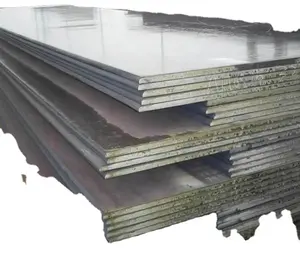



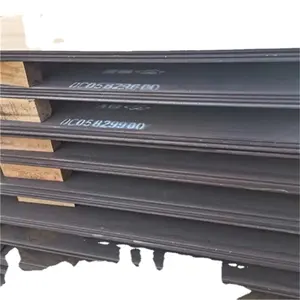



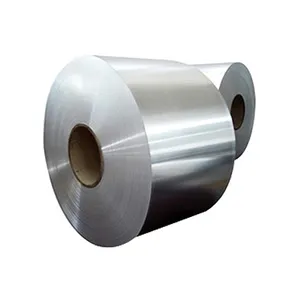




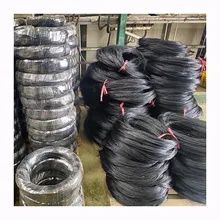
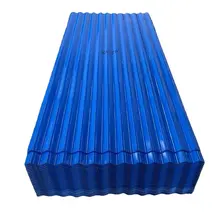



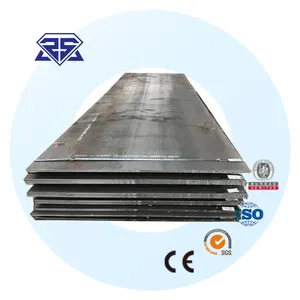















 浙公网安备 33010002000092号
浙公网安备 33010002000092号 浙B2-20120091-4
浙B2-20120091-4